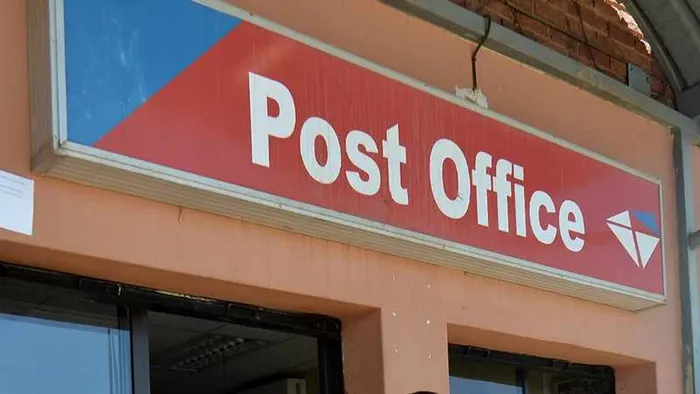Over 400 employees dismissed by South African Post Office amid financial crisis

The South African Post Office has developed a new strategy for implementation to ensure that it can survive after the business rescue process.
Image: FILE
The South African Post Office (SAPO) has dismissed more than 400 employees for various charges of misconduct since the state-owned enterprise was placed under business rescue two years ago.
This was disclosed by Communications and Technology Minister Solly Malatsi when he was responding to parliamentary questions from DA MP Farhat Essack.
SAPO was placed under business rescue in July 2023 and continues to face financial stress due to high net losses and low revenue.
Essack enquired from Malatsi whether his department has taken steps to probe and ensure accountability from individuals involved in actions that resulted in material losses by the Post Office.
Malatsi said SAPO has conducted over 926 disciplinary hearings that resulted in about 442 employees being dismissed on allegations of misconduct during the business rescue process.
“Most employees were dismissed for financial misconduct, wherein employees acted in a dishonest manner for self-enrichment. In addition, SAPO has begun the process of recovering losses from the employees concerned. This is done through deducting funds from the last payments and/or deductions from their retirement benefits,” said Malatsi.
Asked about steps SAPO has taken to address internal deficiencies, which have resulted in adverse findings according to the latest report of Auditor-General Tsakane Maluleke, Malatsi said the number of significant audit findings was reduced from 18 areas for the 2022/23 financial year to 10 areas in the 2023/24 financial year.
He also said findings relating to the property valuation were resolved in the 2023/24 financial year, with property re-evaluations completed in the current financial year.
“The main area of the disclaimer audit opinion relates to the going concern which has been repeated in the 2024/25 financial year. Compliance matters due to the board committees will be repeated in the 2024/25 financial year, as no board was appointed.”
Malatsi said that his department is currently in the process of appointing a board for SAPO.
Essack asked about plans for SAPO in terms of its long-term financial and fiscal viability post the business process and measures that are in place to bring it closer to rural and semi-urban communities after the closures of many of its branches.
Malatsi said SAPO has executed a comprehensive set of restructuring measures aimed at stabilising operations and improving its fiscal position in the long term.
Key steps include a large-scale workforce restructuring process, the rationalisation of its branch network, improved engagement with key clients, and significant progress in debt restructuring.
He said SAPO has developed a new strategy for implementation to ensure that it can survive after the business rescue process.
The joint SAPO Investment Partnership Task Team has been established, comprising his and National Treasury officials, representatives from SAPO management, and the joint business rescue practitioners to find funding alternatives in the form of partnerships.
“Based on the National Treasury’s advice, the department has been engaging the Development Bank of South Africa (DBSA) for assistance to appoint experts to assist the task team to strengthen and enhance the Request for Proposal specifications.
“The experts selected to assist the task team will strengthen the review and assessment of envisaged proposals for partnerships,” said Malatsi, adding that the department was in the process of entering into the service level agreement with the DBSA.
He said the branch rationalisation project has taken into account the requirement to service rural and peri-urban areas and that the current branch network was geographically representative across South Africa.
“However, SAPO will need to reconfigure its full set of services, together with the Social Mandate Subsidy that will fund these services. SAPO is also considering installing additional kiosk-type points of presence as an alternative mechanism to broaden its physical footprint.”
mayibongwe.maqhina@inl.co.za